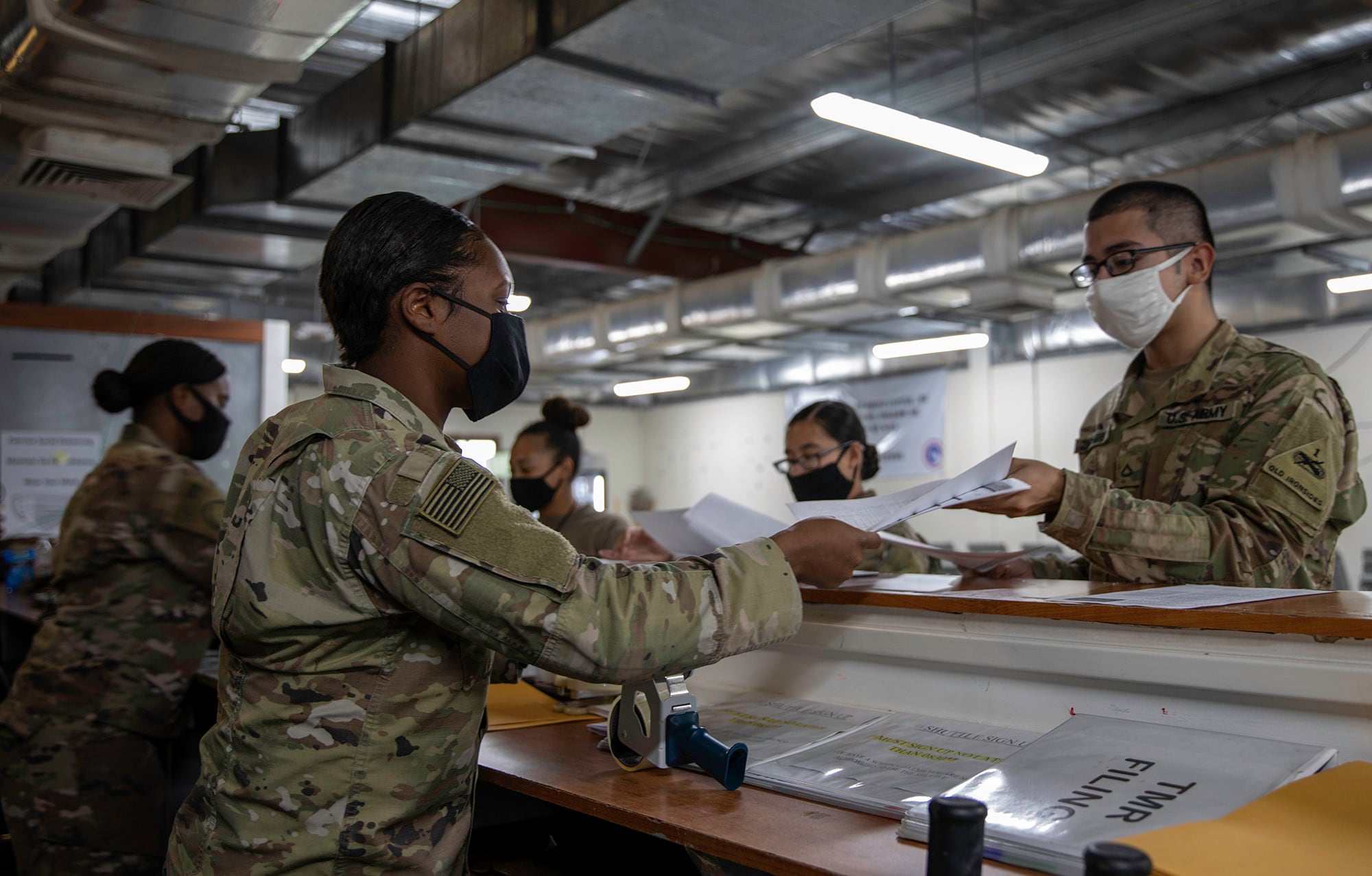Absentee ballots coming from military and U.S. citizens living overseas could make the difference in Georgia’s final vote count in the presidential election, state election officials told reporters Friday.
Those ballots have until the end of the day today to arrive to election officials in order to be counted, and they must be postmarked by Nov. 3.
Georgia Secretary of State Brad Raffensperger said there are 8,890 of those ballots outstanding – ballots that have been sent to those voters, but haven’t yet been returned. As of noon Friday, Joe Biden was ahead of President Donald Trump by a margin of more than 1,000 votes.
“Right now, Georgia remains too close to call. Out of about 5 million votes cast, we will have a margin of a few thousand,” said Raffensperger said.
In other battleground states, ballots can still arrive for a few more days from military and overseas citizens: North Carolina accepts ballots from these voters through Nov. 12. Pennsylvania and Nevada accept them through Nov. 10. The organization Count Every Hero, which is part of the Military Vote Coalition, has been urging restraint in declaring winners until all military votes are counted. The coalition has been emphasizing the importance of every military vote, and that is being demonstrated in this election.
There is no way to predict how many of those 8,890 will be coming in today, said Gabriel Sterling, Georgia’s voting system implementation manager. “It will be more than zero and less than 8,900,” he said.
Traditionally, not all ballots from these voters are returned to states’ election officials, for various reasons. In Georgia, for example, in the Presidential Election of 2016, the ballot return rate of military members was about 69 percent. Georgia election officials transmitted 8,218 ballots to military members, and 5,666 of those were returned for voting, according to the U.S. Elections Assistance Commission.
The Georgia ballot return rate for citizens living overseas was about 76 percent in 2016. A total of 10,416 ballots were transmitted to citizens living overseas and 7,882 were returned.
Raffensperger and Sterling, both Republicans, emphasized that they will count every legal vote. “We’ll get it right, and we’ll defend the integrity of our elections process,” Raffensperger said.
“The final tally in Georgia at this point has huge implications for the entire country. The stakes are high, and emotions on all sides. We’ll not let those debates distract us from our work,” he added.
Sterling said officials are counting another 4,169 ballots from a handful of counties, aside from the military and overseas citizen ballots.
There has been much discussion about counting processes for ballots coming in after Election Day. But many states have long had laws and rules in place that allow for longer transit time for absentee ballots coming from military members, their families and from U.S. citizens living overseas, all of whom receive protections under the Uniformed and Overseas Citizens Absentee Voting Act, known as UOCAVA.
The U.S. Constitution provides that state legislatures have the responsibility for making the rules regarding elections.
Karen has covered military families, quality of life and consumer issues for Military Times for more than 30 years, and is co-author of a chapter on media coverage of military families in the book "A Battle Plan for Supporting Military Families." She previously worked for newspapers in Guam, Norfolk, Jacksonville, Fla., and Athens, Ga.





